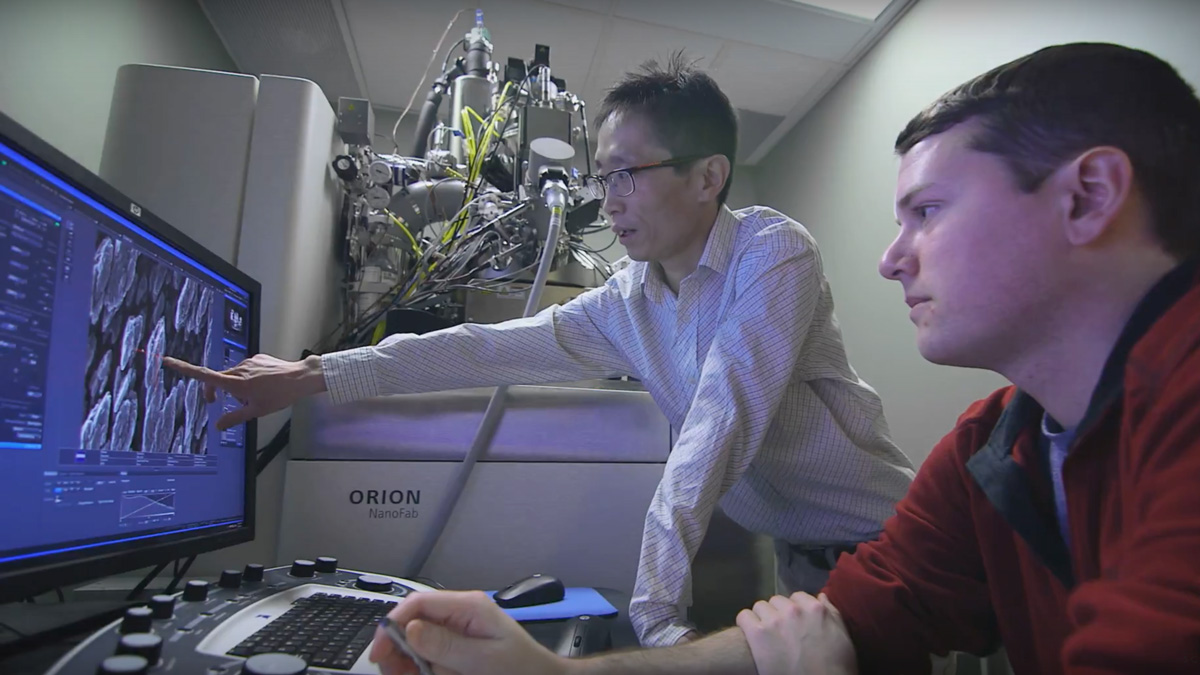 supplied
suppliedUnlike most graduate programs, Quantum Nanotechnology Training in Alberta (QUANTA) was created specifically to train physics and engineering students to excel in business, industry, and entrepreneurship rather than academia.
QUANTA, a new program being offered by the Faculties of Science and Engineering at the Universities of Alberta and Calgary, has similar requirements and timelines to a traditional graduate degree. However, unlike traditional degrees, QUANTA will incorporate professional development, interaction with companies and professionals, and business and entrepreneurship courses.
The research will be largely focused on quantum computing: the development of computer technology using quantum theory. Common computers use data encoded in binary bits, represented by either a one or a zero. Oppositely, one way quantum computers can encode data is with quantum bits in superposition, which allows bits to exist in multiple states at any one time.
John Davis, a University of Alberta physics professor and project lead of QUANTA, said the program was largely developed as a result of seeing most of his students pursuing careers in technology or research companies instead of academia.
“What we’re basically trying to do is better serve our graduate students,” Davis said. “(We want to) modernize graduate training.”
Students, along with their supervisors, will attend professional development sessions as a group. They will also interact with professionals in the field over guest talks and pizza lunches. New courses will introduce students to business and entrepreneurship in nanotechnology, and will include assignments such as two-minute pitches for business ideas.
The program will encourage collaborative research not only within departments, but also between the U of A and U of C. Students will be able to work on both campuses, allowing them easy access to both universities’ technologies and the expertise of the six principal investigators involved.
The program currently has over 20 students from departments of physics and electrical and computer engineering from both universities, but Davis is hoping to double these numbers in the next two years.
QUANTA is also actively looking to expand its female and underrepresented visible minority candidates.
“In one way, you hope you’re not having to preferentially accept (these) students, but I think you have to do that in the beginning of something,” Davis said. “At some point, (having a gender and ethnically diverse group) just becomes sustainable.”
Another goal for the program is to strengthen Alberta’s economy.
“We want this program to diversify Alberta’s economy,” Davis said. “We really want to do this research for the benefit of the province, so we can have quantum technology here. We want to keep these amazing graduate students we train instead of shipping them off to Silicon Valley.”
One of their main research objectives is to develop technology for quantum computing. Google, IBM, and Microsoft are just a few of the companies heavily investing in the development of quantum computers, but the students will not be competing with these companies.
“(Instead), we’ve been focusing on how to take quantum computers and network them together,” Davis said.
In one project, the research group will seek to establish a quantum network connection using widely-used fiber optic cables between Edmonton and Calgary. Eventually, Davis hopes their research will allow quantum computers not only to communicate with each other, but also to have a quantum internet.
“A quantum computer is interesting, but not that interesting until it can communicate or is on the internet,” Davis said. “Wouldn’t it be cool if the world’s first quantum internet was in Alberta?”




